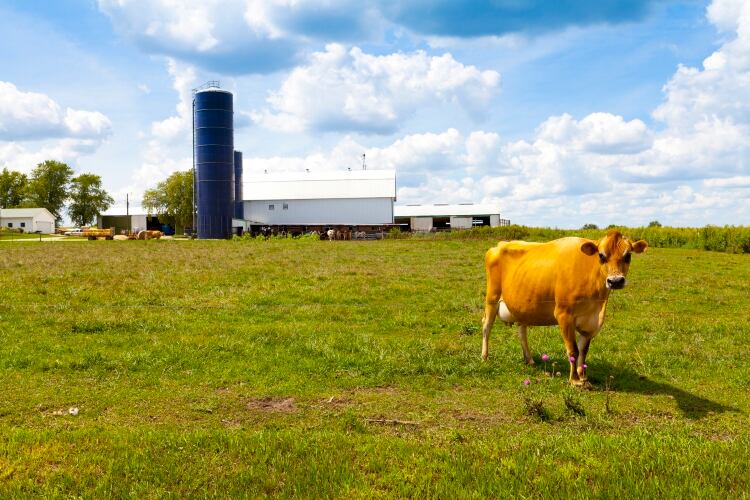A new study by The Institute for New Economic Thinking (INET), Spilt Milk: COVID-19 and the Dangers of Dairy Industry Consolidation, says the pandemic created the dairy industry’s perfect storm in the US.
The report was authored by the Center for Economic and Policy Research’s (CEPR) co-director Eileen Appelbaum and researcher Jared Gaby-Biegle, who said it is a cautionary examination of nearly 40 years of consolidation and specialization in milk and dairy foods processing that left the industry dominated by a handful of large dairy processors, inflexible, and unable to adjust to challenging circumstances.
Advances in technology made large-scale dairies more productive and able to produce milk cheaper than small farms and large-scale dairy product processing feasible. But in 1982, antitrust rules aimed at protecting against market domination by a few firms was redirected to protect consumer welfare, which the study said was narrowly interpreted as lower consumer prices.
This created a wave of consolidation that is still ongoing, the authors of the study said.
Investor-owned corporations like Dean Food went on a buying spree, they said, scooping up competitors. By 2001, Dean Food was the second largest dairy producer in the US.
Dairy cooperatives followed a similar path, with large cooperatives buying up smaller ones and recruiting independent dairy farmers to become members. Four large regional cooperatives merged to become Dairy Farmers of America (DFA) in 1998 and expanded into other parts of the milk product supply chain.
DFA, Dean Food and Borden Dairy have dominated the dairy industry for most of the 21st century, the report said.
The report said monopolization of dairy products processing has caught many family farmers in a cycle of consolidation and overproduction as processors have set prices for raw milk below the cost of production for smaller dairies.
To survive, the authors argue, farmers have increased the number of cows and the scale of production to reduce costs – increasing the supply of milk, while the demand for milk falls.
Efforts by farmers to increase the scale of operations to achieve greater productivity and greater volumes of milk led to an oversupply. Even before the pandemic, this oversupply resulted in a 40% drop in price of raw milk between 2014 and 2019, which the report said drove thousands of smaller farms into bankruptcy.
It said once the pandemic hit, high volume buyers like restaurants and schools shut down, and that the dairy industry’s highly specialized processing plants and inflexible supply chains choked under pressure, leaving some farmers no choice but to dump milk.
The authors of the study also said that while the industry received a $16bn bail-out from the pandemic emergency CARES Act, distribution of CARES Act funds has favored large dairy farms.
“The ultimate solution is to break up the largest dairy cooperatives that no longer serve the interests of the member owners and break up the monopolized investor-owned corporations that process dairy products,” Appelbaum said.
“But states have shown that we don’t have to wait for breaking up these behemoths to begin to limit the domination of the industry and increase its resilience.”

